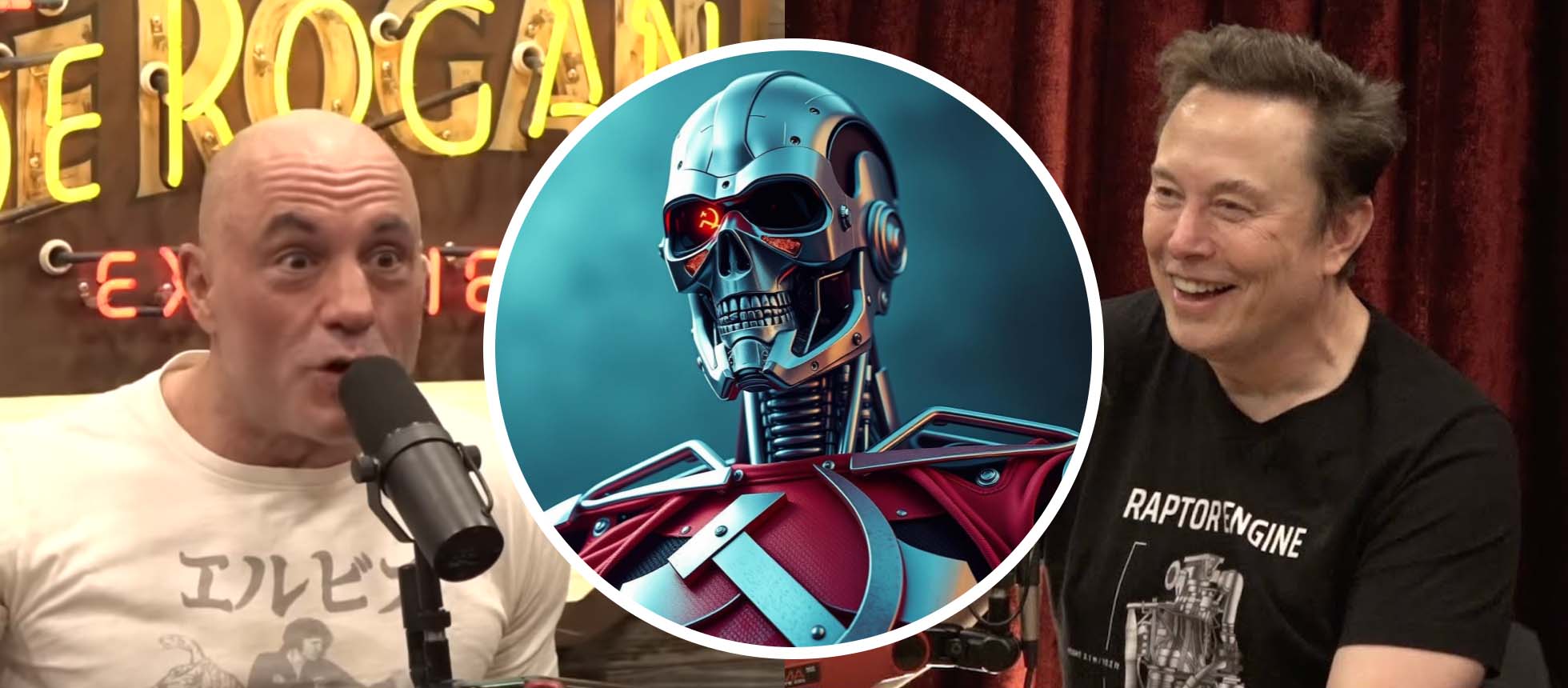In a conversation on the Joe Rogan Experience #2404, Elon Musk presented a striking paradox about humanity’s economic future: capitalism, through its development of artificial intelligence and robotics, may inadvertently create what he called the “communist utopia”—a state of universal abundance that socialist systems have always promised but never delivered.
Musk’s vision centers on what he terms “universal high income,” not merely universal basic income. According to the tech entrepreneur, AI and robotics will eventually create such dramatic economic productivity that virtually everyone could have access to any goods or services they want.
“Anyone can have any products or services that they want,”
Musk explained, describing a future where working becomes optional rather than necessary for survival.
The irony wasn’t lost on Musk himself.
“The ultimate capitalist thing of AI and robotics enabling prosperity for all and an abundance of goods and services—the capitalist implementation of AI and robotics, assuming it goes down the good path, is actually what results in the communist utopia,”
he told Rogan.
“Because fate is an irony maximizer.”
This isn’t mere speculation. Musk argued that achieving this future is actually necessary for America’s survival. He revealed that interest payments on the national debt now exceed the entire military budget and even aggressive government cost-cutting through initiatives like DOGE can only delay, not prevent, fiscal collapse.
“The only way to get us out of the debt crisis and to prevent America from going bankrupt is AI and robotics,”
he stated.
“We need to grow the economy at a rate that allows us to pay off our debt.”
The transition won’t be smooth. Musk acknowledged that AI will rapidly eliminate jobs—particularly desk jobs involving email processing, phone answering and any work that doesn’t involve “moving atoms.” He compared the coming disruption to historical technological shifts, like when digital computers replaced human calculators, but emphasized the pace will be dramatically faster, calling AI a “supersonic tsunami.”
Physical jobs—welding, plumbing, electrical work, farming, cooking—will persist longer because they involve manipulating the physical world. But digital work, including coding, will be among the first casualties of AI advancement.
Yet Musk remains optimistic about the endpoint. He envisions a future of “sustainable abundance” where natural beauty is preserved while everyone enjoys excellent medical care and material prosperity. The challenge, he admitted, is one of meaning:
“I don’t know how to answer the question about meaning,”
he said, acknowledging that purpose derived from work will need to be replaced by purpose found in other pursuits.
Drawing on science fiction, Musk recommended Ian Banks‘ “Culture” novels as perhaps
“the least inaccurate version of the future”
—stories depicting advanced civilizations where AI and robotics have eliminated scarcity and work is optional.
Critical to achieving this benign outcome is developing AI with the right values. Musk stressed that AI must be “maximally truth-seeking” and curious, treating all human lives equally without racial or gender bias. He contrasted this with what he saw as problematic programming in other AI systems that reflect ideological biases.
“I think a curious truth-seeking AI will want to foster humanity,”
Musk explained,
“because we’re much more interesting than a bunch of rocks.”
He drew an analogy to human treatment of chimpanzees and gorillas—species we could eliminate but instead choose to protect because they’re interesting.
The path forward requires winning what Musk called an “AI race,” but not in the traditional sense. Rather than simply achieving technological supremacy, the goal is creating at least one AI system that embodies fair, truth-seeking values, which will then pressure other AI systems to follow suit through competition and public comparison.
If successful, capitalism’s relentless drive for efficiency and productivity—the same forces that created industrial-scale inequality—may paradoxically deliver the post-scarcity society that communist revolutionaries could only dream about. The difference is that it would emerge from markets and innovation rather than central planning and force.
“The problem with communism is universal low income,”
Musk noted.
“It’s not that everyone gets elevated, it’s that everyone gets oppressed except for a very small minority of politicians who live lives of luxury.”
By contrast, AI-driven abundance would genuinely elevate everyone’s standard of living.
Whether this optimistic scenario materializes depends on navigating what Musk acknowledged are multiple possible futures, including dystopian outcomes. But his core message was clear: the most ironic outcome—capitalism achieving communism’s stated goals where communism itself catastrophically failed—may also be the most likely, precisely because it aligns with technological and economic reality rather than ideological fantasy.


